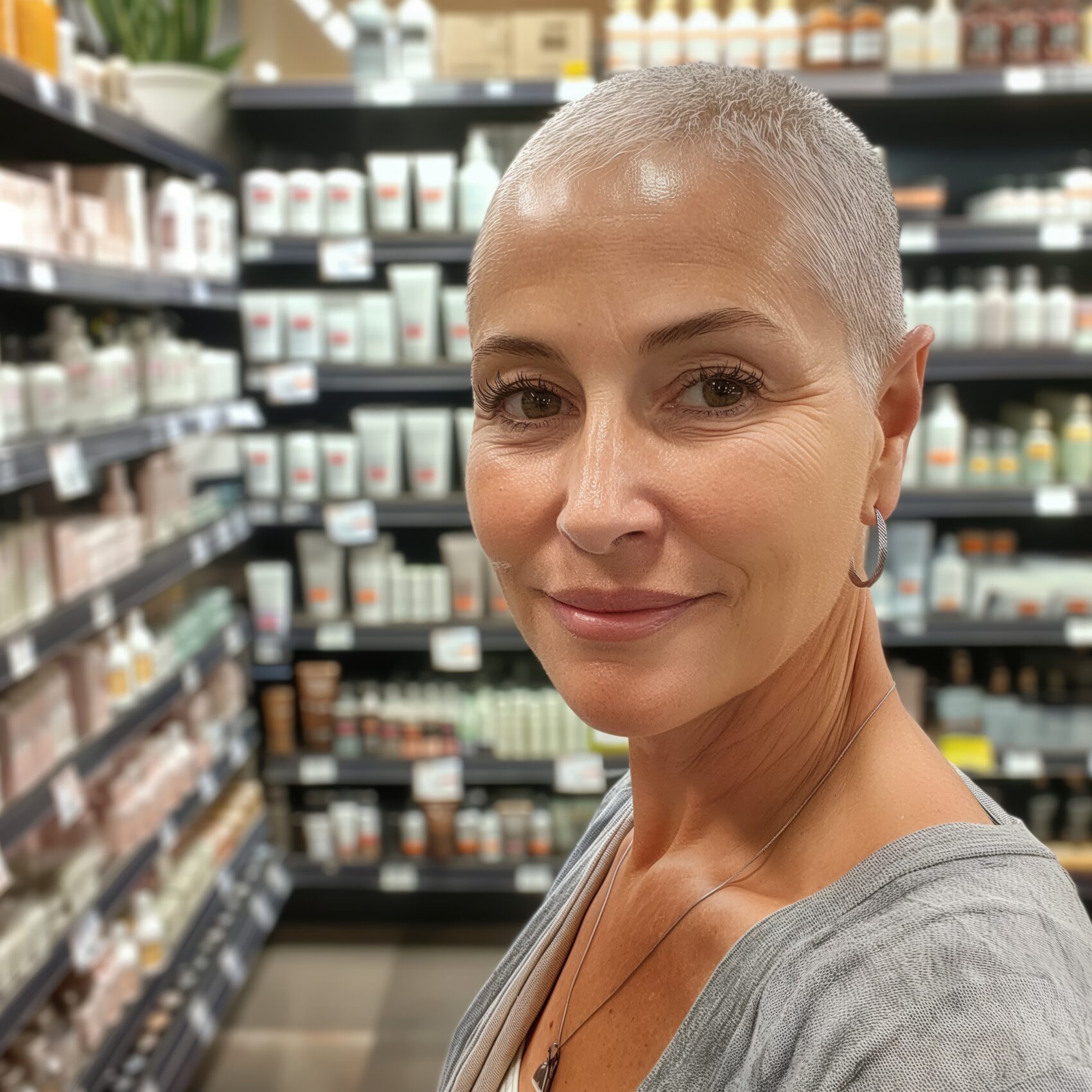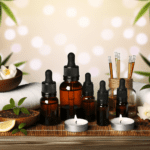Introduction to Omega-3 Fatty Acids
What are Omega-3 Fatty Acids?
Omega-3 fatty acids are a group of polyunsaturated fatty acids that are essential for human health. These fatty acids cannot be synthesized by the body and must be obtained through diet. They are known for their anti-inflammatory properties and are crucial components of cell membranes, impacting cell function and overall health. There are three main types of omega-3 fatty acids: ALA (alpha-linolenic acid), found in plant oils, and EPA (eicosapentaenoic acid) and DHA (docosahexaenoic acid), primarily found in marine oils.
Sources of Omega-3s
Omega-3 fatty acids are found in a variety of food sources. Marine sources such as fish and algae are rich in EPA and DHA, while plant sources like flaxseeds, chia seeds, and walnuts provide ALA. It’s important to note that ALA needs to be converted by the body into EPA and DHA, and this conversion process can be inefficient. Therefore, direct sources of EPA and DHA are recommended for their potent health benefits.
Importance of Omega-3s in Diet
Omega-3 fatty acids play a significant role in cardiovascular health, cognitive function, and inflammation regulation. They are also vital for proper fetal development and may improve vision and neurological development in infants. For adults, omega-3s have been linked to reduced risk of heart disease, arthritis, and depression. A diet rich in omega-3s is crucial for maintaining balance and supporting overall health.
Overview of Skin Health and Nutrition
Nutrition profoundly affects skin health, and omega-3 fatty acids are particularly beneficial. They contribute to the skin’s lipid barrier, crucial for retaining moisture and protecting against environmental damage. Omega-3s also possess anti-inflammatory properties that can help manage conditions like eczema and psoriasis. Additionally, they may protect against UV radiation and potentially reduce the risk of skin cancer. A diet that includes a healthy amount of omega-3 fatty acids can lead to more hydrated, resilient, and youthful-looking skin.
By the way, something for you, a little gift!!!
I am just in the middle of publishing my book. It’s about How women can balance their hormones. One part is about food and diet, of course.
Follow this link and enter your email.
I will send you this part of the book for free once the book is published. It has many concrete, practical tips and recipes and will help you feel better during menopause or times of Big hormonal fluctuations.
Annette, Damiva Lead for Health & Wellness

The Role of Omega-3s in Skin Health
Hydration and Omega-3s
One of the fundamental aspects of maintaining skin health is ensuring proper hydration. Omega-3 fatty acids, particularly eicosapentaenoic acid (EPA) and docosahexaenoic acid (DHA), play a pivotal role in preserving the skin’s natural barrier function. This barrier is crucial for retaining moisture and preventing dehydration. A diet rich in Omega-3s can help combat dry, flaky skin by bolstering the lipid content of the skin, which in turn helps to lock in moisture and maintain supple, hydrated skin.
Anti-Inflammatory Properties
Inflammation is a common underlying factor in a myriad of skin conditions, including acne, eczema, and psoriasis. Omega-3 fatty acids are renowned for their anti-inflammatory effects. By modulating the inflammatory response through the inhibition of pro-inflammatory cytokines and leukotrienes, Omega-3s can help to reduce redness, swelling, and irritation. This not only alleviates symptoms but also improves the overall appearance of the skin.
Protection Against Sun Damage
Exposure to ultraviolet (UV) radiation from the sun can lead to premature skin aging and increase the risk of skin cancer. Omega-3 fatty acids have been shown to offer a degree of protection against UV damage. They work by reducing the inflammatory response to UV exposure and may also help in reducing the risk of photocarcinogenesis. While Omega-3s are not a substitute for sunscreen, they can be a valuable component in a comprehensive approach to sun protection.
Omega-3s and Skin Aging
Collagen is the protein that provides structure and elasticity to the skin. As we age, collagen production declines, leading to the formation of wrinkles and sagging skin. Omega-3 fatty acids support the skin’s structure by promoting collagen production and protecting against enzymatic processes that break down collagen fibers. This can result in a reduction of fine lines and wrinkles, contributing to a more youthful and resilient complexion. Additionally, Omega-3s can improve skin elasticity and may help to prevent the thinning of the skin that occurs with age.
In conclusion, Omega-3 fatty acids are a powerful ally for skin health. They contribute to hydration, reduce inflammation, offer protection against sun damage, and combat the signs of aging. To harness these benefits, it is essential to include Omega-3-rich foods in your diet, such as fatty fish, flaxseeds, and walnuts, or consider high-quality supplements if dietary sources are insufficient. By doing so, you can support your skin’s health from the inside out, revealing its natural beauty.
Do you know the three main ways that your body gets in touch with harmful chemicals with everyday products? Knowledge is Power!
The Ultimate Detox Guide will tell you how to lower your exposure to harmful chemicals!

Scientific Evidence Supporting Omega-3s for Skin Health
Clinical Studies on Omega-3s and Dermatology
Omega-3 fatty acids, particularly eicosapentaenoic acid (EPA) and docosahexaenoic acid (DHA), have been the focus of numerous clinical studies examining their impact on skin health. These studies have consistently demonstrated the beneficial effects of omega-3s on skin barrier function, hydration, and inflammatory responses. For instance, research has shown that EPA can significantly reduce the thickness of the epidermis that increases due to UVB exposure, suggesting a protective role against photoaging. Moreover, omega-3s have been found to restore collagen levels in the skin, which is crucial for maintaining skin elasticity and reducing the appearance of wrinkles.
Research on Omega-3s and Skin Conditions
Extensive research has been conducted on the role of omega-3 fatty acids in managing various skin conditions. For example, studies have indicated that omega-3 supplementation can lead to improved outcomes in individuals with dermatitis, characterized by increased skin hydration and reduced itchiness. Furthermore, omega-3s have shown promise in ameliorating symptoms of psoriasis, a chronic inflammatory skin condition, by modulating the inflammatory processes involved. The anti-inflammatory properties of omega-3s are also beneficial in reducing the severity of acne, which is often driven by inflammation and overactive sebaceous glands.
Omega-3s in Healing and Repair
The role of omega-3 fatty acids in skin healing and repair has been a subject of interest in the scientific community. Omega-3s are known to influence cytokine production and support the body’s anti-inflammatory response, which is vital for the healing process. Clinical evidence suggests that supplementation with EPA and DHA can enhance the expression of anti-inflammatory cytokines in wound fluid, thereby promoting faster wound healing. Additionally, omega-3s have been associated with improved collagen fiber organization in wound sites, which is essential for the strength and integrity of the repaired tissue.
In conclusion, the scientific evidence underscores the multifaceted role of omega-3 fatty acids in skin health, from maintaining hydration and elasticity to mitigating inflammatory skin conditions and enhancing the body’s natural healing processes. As research continues to evolve, the therapeutic potential of omega-3s in dermatology becomes increasingly apparent, offering promising avenues for both topical and ingestible skin care solutions.

Bette 100% All-Natural Relaxing Lavender Body Lotion.
Chemical-Free
Your relaxing night time body moisturizer to leave the day’s stress behind. Decompress and wish your body good night with the calming scent of lavender.
Incorporating Omega-3s into Your Skin Care Routine
Topical vs. Ingestible Omega-3s
When it comes to harnessing the benefits of Omega-3 fatty acids for skin health, there are two main approaches: topical application and ingestion. Topical Omega-3s are applied directly to the skin, often found in serums, creams, and oils. They can provide targeted benefits, such as enhancing the skin’s natural barrier and reducing inflammation in specific areas. On the other hand, ingestible Omega-3s, obtained through diet or supplements, work from the inside out, promoting overall skin health and addressing systemic issues like dryness and inflammation.
Natural Sources of Omega-3s for Topical Use
Nature offers a bounty of sources rich in Omega-3s that can be used topically. Flaxseed oil, chia seed oil, and hemp seed oil are plant-based options that can be applied to the skin to enhance hydration and elasticity. Fish oil, rich in EPA and DHA, can also be found in certain skincare products. When using these natural oils, it’s essential to look for cold-pressed, unrefined options to ensure the highest nutrient content.
Dietary Adjustments for Better Skin Health
Integrating Omega-3s into your diet is a powerful way to improve skin health. Aim to consume fatty fish like salmon, mackerel, and sardines at least twice a week. Vegetarian sources such as flaxseeds, chia seeds, and walnuts can also boost your Omega-3 intake. Cooking with Omega-3-rich oils, like flaxseed or walnut oil, can further enhance your dietary profile. Remember, a balanced diet that includes these fatty acids can contribute to a more radiant complexion.
Supplements: What to Look For
If you struggle to get enough Omega-3s from your diet, supplements can be an effective alternative. When choosing a supplement, consider the following:
- Quality: Look for products that have undergone third-party testing for purity and potency.
- EPA and DHA Content: These are the most beneficial Omega-3s for skin health, so ensure your supplement has a high concentration of these acids.
- Sustainability: Opt for brands that source their Omega-3s from sustainable practices to minimize environmental impact.
- Freshness: Freshness is key to avoiding rancid oils, which can be counterproductive to your health. Check for products with proper storage and freshness guarantees.
By carefully selecting and incorporating Omega-3s into your skincare routine, you can unlock the full potential of these fatty acids for a healthier, more radiant complexion.
Potential Risks and Considerations
Balancing Omega-3 and Omega-6 Fatty Acids
While omega-3 fatty acids are essential for maintaining skin health and overall wellness, it is crucial to balance them with omega-6 fatty acids. Both types of fatty acids are vital, but the modern diet tends to be disproportionately high in omega-6s, which are prevalent in processed foods and certain vegetable oils. An imbalance, favoring omega-6s, can promote inflammation, potentially undermining the anti-inflammatory benefits of omega-3s. To maintain skin health and reduce the risk of inflammatory skin conditions, individuals should strive for a balanced intake of these fatty acids, emphasizing omega-3-rich foods like fatty fish, flaxseeds, and walnuts.
Allergies and Sensitivities
When considering omega-3 supplements or increasing dietary intake, it’s important to be aware of potential allergies and sensitivities. Fish and shellfish are common allergens, and individuals with sensitivities should approach omega-3 supplements derived from marine sources with caution. Plant-based omega-3 sources, such as flaxseed or algae supplements, may be suitable alternatives. Always consult with a healthcare provider before starting any new supplement regimen, especially if you have known allergies or sensitivities.
Quality and Purity of Omega-3 Sources
The quality and purity of omega-3 sources are paramount, particularly when it comes to fish oil supplements. Contaminants like mercury and polychlorinated biphenyls (PCBs) can be present in fish and thus in fish oil products. High-quality supplements undergo rigorous purification processes to remove these contaminants. Look for certifications from reputable third-party organizations that test for purity and potency. Additionally, the form of omega-3, whether as free fatty acids, phospholipids, or triglycerides, can affect absorption and efficacy. Consumers should opt for products that provide clear information about their omega-3 content and form.

Finally Peace of Mind! NO more worries, no more hassle in checking the labels of creams and lotions.
I found skin care and beauty without chemicals. Chemicals in skin care are hormone disruptors and could turn out very bad for me. I need to stay away from them.
Safe ingredients, no doubts, no compromises and no false promises.
Sustainable and Ethical Considerations
Environmental Impact of Omega-3 Sourcing
The quest for Omega-3 fatty acids has led to increased fishing pressures on marine ecosystems. The extraction of fish oil, primarily from species like salmon, mackerel, and sardines, has raised concerns about overfishing and the disruption of aquatic food chains. Moreover, the presence of heavy metals and other contaminants in fish poses risks not only to human health but also to marine life. As a result, there is a growing demand for sustainable and environmentally friendly sources of Omega-3s, such as algae-based supplements, which offer a viable alternative without the associated ecological drawbacks.
Ethical Practices in Omega-3 Production
Ensuring ethical practices in the production of Omega-3 supplements is paramount. This includes responsible sourcing, adherence to fair labor standards, and transparency in the supply chain. Ethical Omega-3 production also involves the welfare of aquatic life, with a focus on reducing bycatch and minimizing the impact on non-target species. Consumers are increasingly looking for certifications and labels that indicate a product has been sourced and produced responsibly, reflecting a shift towards more conscious consumption.
Choosing Cruelty-Free Omega-3 Products
For those concerned with animal welfare, the notion of cruelty-free Omega-3 products is gaining traction. This involves a shift away from fish-derived Omega-3s towards plant-based sources such as flaxseeds, chia seeds, and hemp seeds, as well as algae oil, which do not involve the harvesting of fish and are thus free from animal exploitation. Cruelty-free Omega-3 supplements are becoming more readily available, providing consumers with options that align with a compassionate lifestyle.
In conclusion, the beauty of Omega-3s extends beyond their health benefits to include the beauty of sustainable and ethical sourcing. By choosing Omega-3 products that are environmentally friendly, ethically produced, and cruelty-free, consumers can enjoy the skin health benefits of these fatty acids while also supporting the health of our planet and its inhabitants.

Do you have the most commonly used but toxic, disease bringing chemicals in your skin care? Many chemicals in skincare are hormone disruptors and make menopause symptoms worse.
Find out more…
Conclusion: Embracing Omega-3s for Holistic Skin Care
Summary of Benefits
The journey through the world of omega-3 fatty acids has revealed their profound impact on skin health. These essential nutrients, abundant in foods like fish, nuts, and seeds, play a critical role in maintaining the skin’s hydration, elasticity, and overall resilience. Omega-3s boast anti-inflammatory properties that can soothe irritated skin and may protect against the harsh effects of UV radiation. Their ability to combat skin aging is also noteworthy, as they help to preserve the skin’s youthful texture and appearance.
Personalizing Your Omega-3 Skin Care Plan
While the benefits of omega-3s are universal, the approach to incorporating them into your skin care routine is highly personal. To harness these benefits, consider both topical and ingestible forms of omega-3s. Topical applications, such as serums or creams enriched with omega-3s, can directly target skin concerns, while ingestible sources, including supplements and omega-3-rich foods, can improve skin health from the inside out.
- Natural Sources: Incorporate foods high in omega-3s, like salmon and flaxseeds, into your diet to support skin hydration and elasticity.
- Hydration: Pair your omega-3 intake with adequate water consumption to enhance skin moisture and assist in the delivery of nutrients.
- Supplements: If your diet lacks sufficient omega-3s, consider high-quality supplements. Look for products with a certificate of analysis for purity and potency.
Future Directions in Omega-3 Research for Skin Health
As we continue to explore the benefits of omega-3s, ongoing research is crucial in uncovering new ways these fatty acids can support skin health. Future studies may delve deeper into the molecular mechanisms behind omega-3s’ protective effects against environmental stressors and their potential in treating specific skin conditions. The exploration of sustainable and ethical sourcing will also remain at the forefront, ensuring that our pursuit of beauty is kind to both our skin and the planet.
In conclusion, embracing omega-3s in your skin care routine is more than a trend—it’s a commitment to nurturing your skin holistically. By understanding the benefits, personalizing your approach, and staying informed about the latest research, you can unlock the full potential of omega-3s for a radiant, healthy complexion. As we look to the future, the promise of omega-3s in skin health continues to shine brightly, offering a natural and effective path to achieving the glow that reflects our inner well-being.








